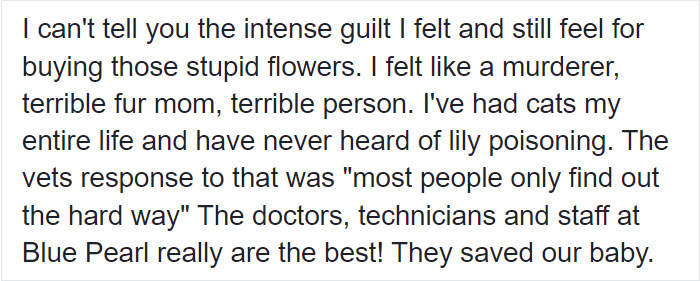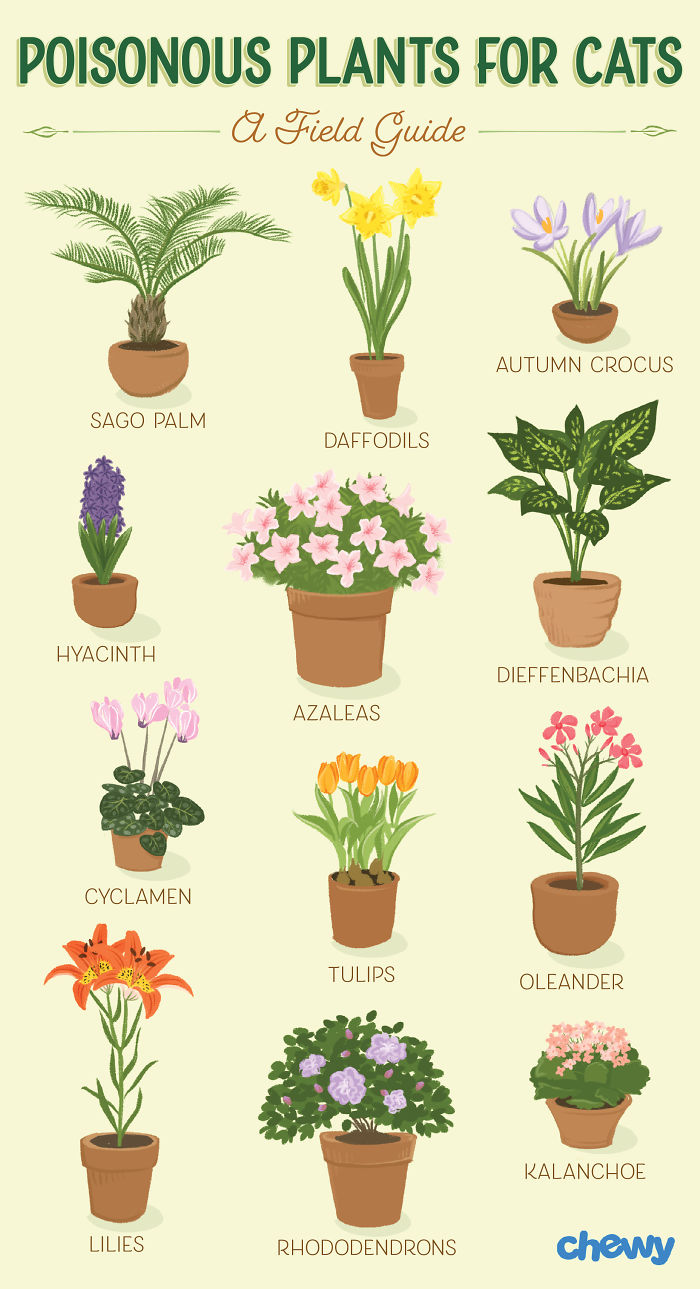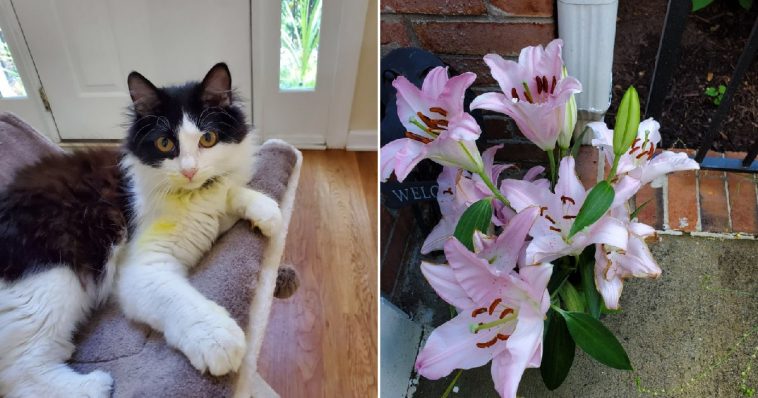Warnock Willow was playing with some lilies in her office and initially, she was just worried about the pollen stain on the front of her body.
On May 28th, Warnock watched her cat Willow play with some lilies in her office. After shooing her away, Warnock’s initial concerns were about the pollen stain on the front of her body. But a quick Google search revealed Willow could’ve actually died.
Lilies are extremely harmful to cats and even cleaning the pollen from their fur can send the animals into critical illness.
Fearing for Willow’s life, Warnock threw the cat in the shower to wash off the pollen and then rushed her to the Blue Pearl Emergency & Specialty Hospital in Georgia, U.S.






According to Vets4Pets, signs of lily toxicity can occur within two hours of ingestion, and start with gastrointestinal signs such as vomiting, loss of appetite, and drooling. Cats that have eaten lily quickly become lethargic and depressed, and may seem very unwell.
In some cases, vomiting may subside after a few hours but the other signs continue, and within 72 hours affected cats develop acute kidney failure.
Cats with lily toxins may urinate more at first, and have abdominal pain, a change in thirst, weakness, and seizures. If the animal experiences very severe acute kidney failure, it may stop urinating altogether.
If you notice your cat has come into contact with a lily or has possibly eaten some, you should take your cat to the vet immediately. If possible, you should bring the plant with you.
Ideally, treatment needs to be started within six hours of the cat coming into contact with the lily.
Sadly, there’s no antidote to lily poisoning but the vet will take other measures, for example, they will induce vomiting and reduce further absorption of the toxins by feeding activated charcoal if only a short time has elapsed since your cat ate the lily.
Aggressive fluid therapy with a drip, anti-nausea medication, kidney function blood tests, and close monitoring of blood pressure and urine output may all be part of your cat’s supportive care plan.
Cats often require several days of hospitalization, care, and monitoring to recover and reduce the long-term impact on kidney function and clear the body of the toxins.
However, even with prompt veterinary attention, there is no guarantee that a cat with lily poisoning will survive. Those seen more than 18 hours after the initial ingestion have a very poor prognosis, but even early, aggressive treatment can still result in death, and surviving cats often have permanent kidney damage.

There are more plants that pose serious threats to cats



